Breaking the Taboo: Health Workers in Papua Explore New Outreach Methods to Promote Youth HIV Testing
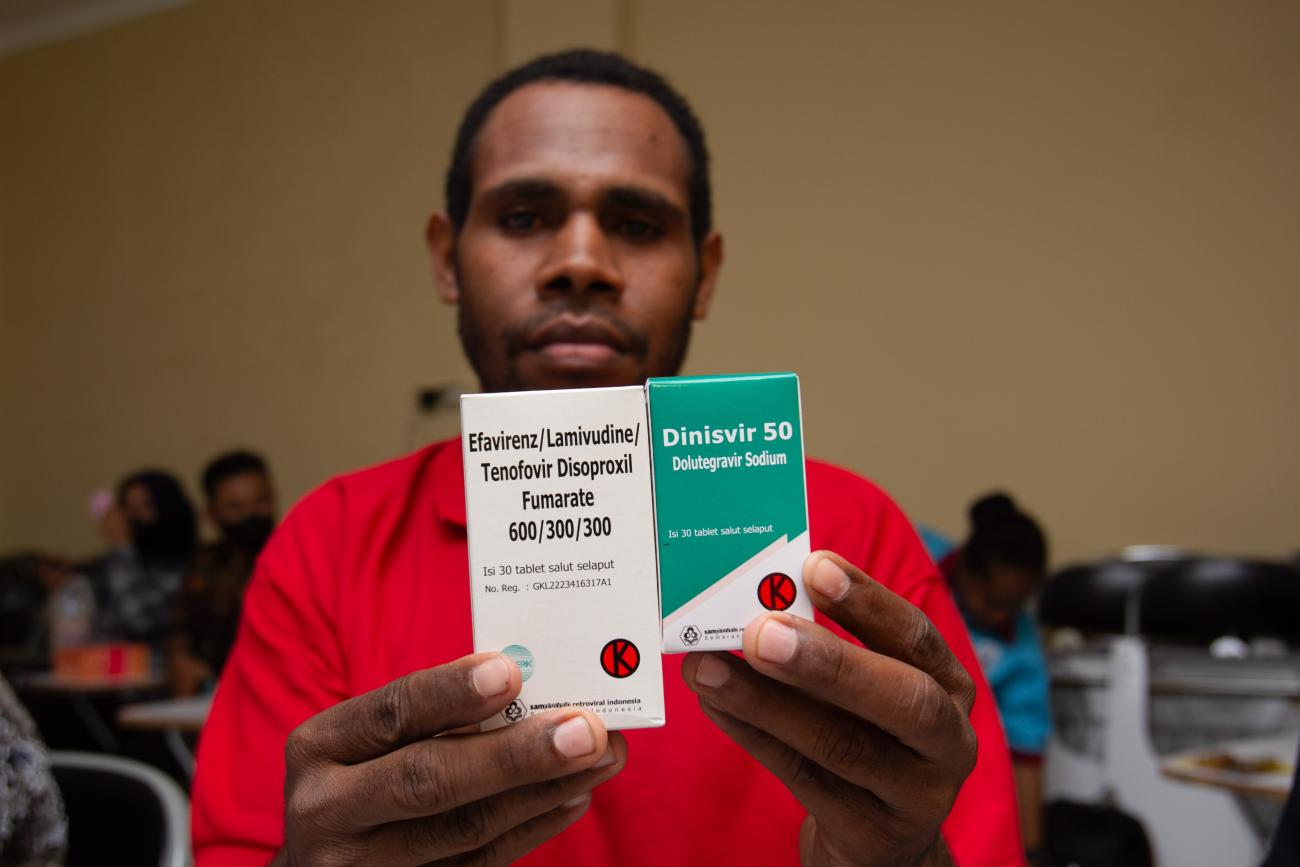
-

Even a decade later, Maria Jeklin Maker is not sure of the exact circumstances that led to her cousin’s death. The few details Ms. Maker received, aged 16, had come from her aunt: her cousin had HIV, the virus that causes AIDS, and people in their community avoided her for fear of contracting it.
As a trainee nurse, Ms. Maker, now 26, knows how misguided those people’s fears were. She also knows it will soon be her job to give patients accurate information about HIV. Still, when it came to finding out her own status, the experience made her hesitate: “There is such a lack of knowledge; stigma and discrimination are still high in Papua.”
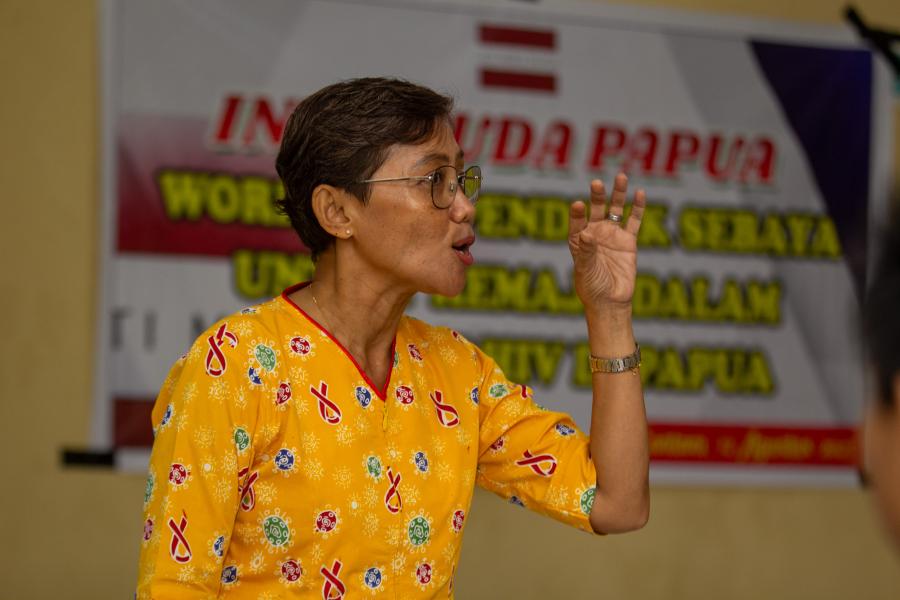
Despite the widespread availability of antiretroviral medicines that enable people living with HIV to enjoy long, healthy lives, an estimated 26,000 people died of AIDS in Indonesia in 2022. In Papua, Indonesia’s easternmost region, HIV prevalence is almost 7 times the national average, the Ministry of Health estimated in 2022. The Ministry's data also reveals that about 48% of people living with HIV in the Indonesian half of Papua Island were unaware that they had contracted the virus.
With nearly half of Indonesia’s new HIV infections occurring among people aged 15–24, youth civil society network Inti Muda—with the backing of UNAIDS—is fighting back against the ignorance, discrimination, and stigma that prevents youth from accessing HIV testing, treatment, and support. That starts with making health services more friendly to youth and “key populations”—a designation that refers to the communities most vulnerable to AIDS.
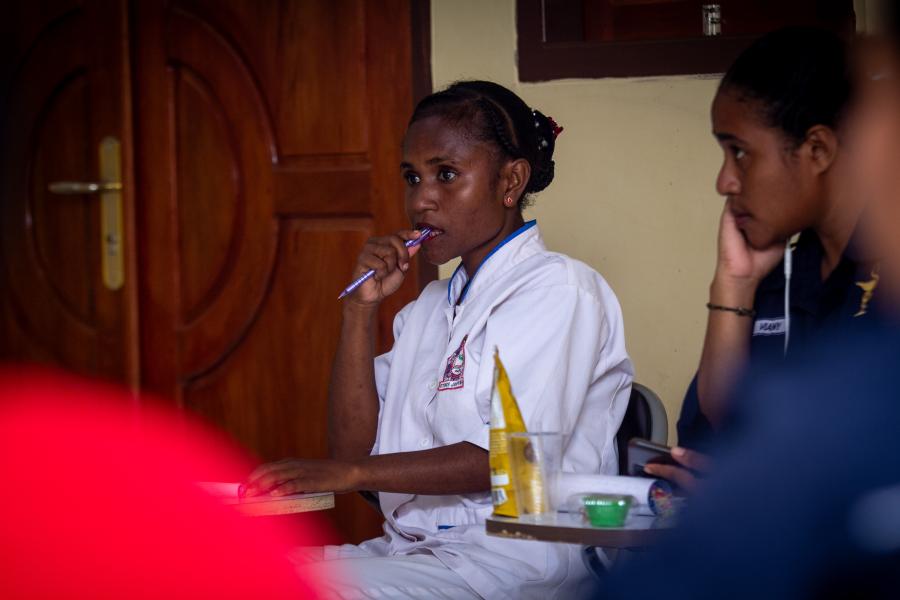
“Young people still encounter many challenges that prevent them from accessing the life-saving health care they need,” said Krittayawan Boonto, UNAIDS Country Director for Indonesia. Organisations like Inti Muda, she says, help equip them to “take control of the HIV response and to have direct involvement in creating safe spaces where young people can access HIV services free from stigma and discrimination.”
Stigma and discrimination are among the key factors driving the low willingness of young people in provinces like West Papua to access HIV-related support, according to a recent Inti Muda and University of Padjadjaran study. Respondents cited among other deterrents inconvenient opening hours and the remote location of clinics and hospitals, concerns about confidentiality and privacy, and judgmental attitudes from healthcare workers on issues such as sexual orientation, gender identity, and mental health.
“We are limited by which clinics we can access because many, if not most, are not youth-friendly,” said Sepi Maulana Ardiansyah, Inti Muda’s former national coordinator. “If the services are bad, young people won’t use them and they will tell other young people not to use them,” he added
Findings from the Inti Muda and University of Padjadjaran study on youth attitudes towards HIV services in Papua were among the information shared with more than 50 healthcare workers at UNAIDS-supported training sessions held in the West Papua cities of Sentani and Jayapura in 2022.
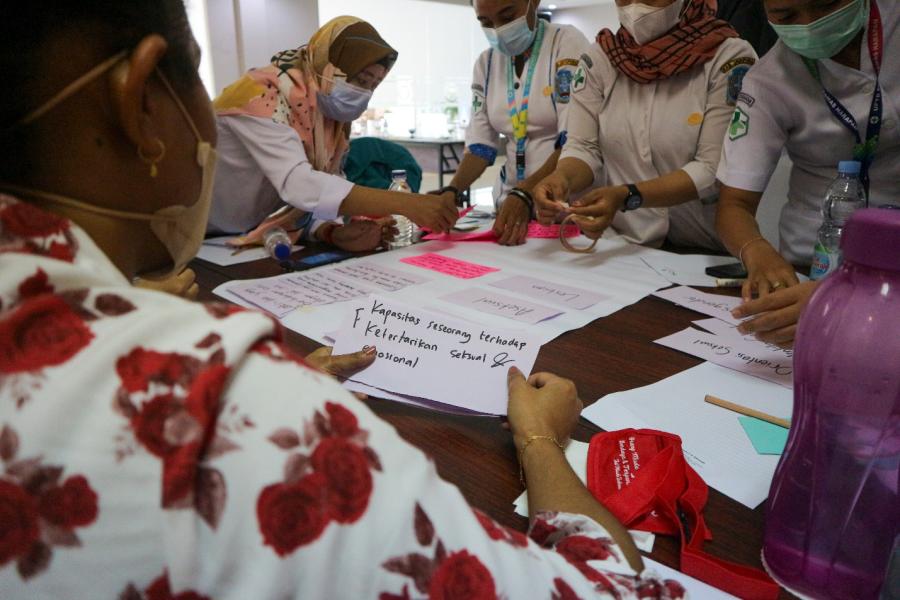
Hilda Rumboy, a midwife in charge of the HIV Services Department at the Waibu Primary Health Center in Papua’s Jayapura regency said the session helped her understand the diverse needs of young people and would, “allow us to improve our services to become youth-friendly, which is now our main priority.”
A year on from the training, young people feel comfortable using the services at Waibu Primary Health Center, whose staff are friendly and treat all patients equally, according to Inti Muda. Among other service upgrades, patients can now access HIV service-related appointments outside of the centre’s operating hours of 08:00 to 14:00.
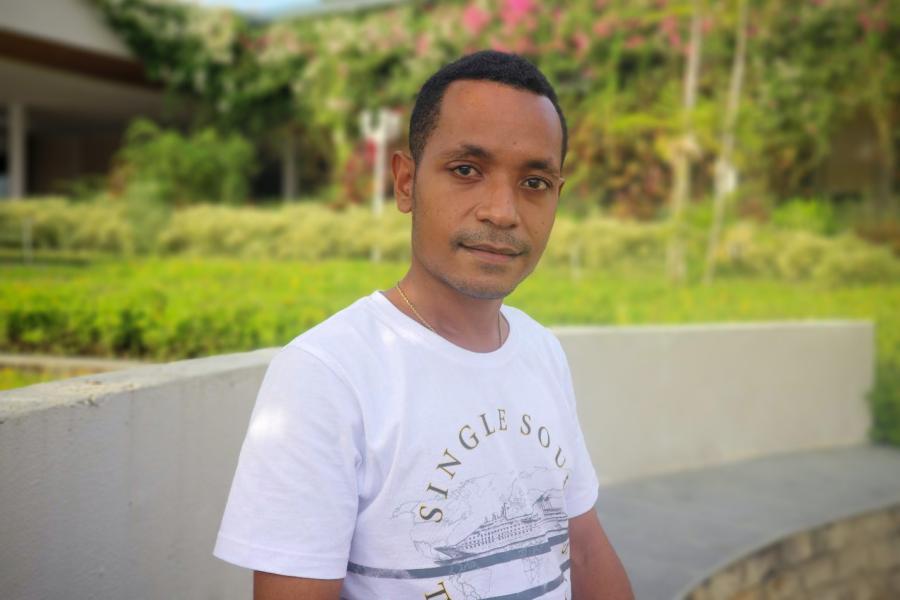
In parallel with efforts to sensitise the region’s health workers to the needs of young people, Inti Muda organized a festival to generate greater demand for HIV services and engage young people directly in HIV response, which like the training for healthcare workers was supported by the Australian Department of Foreign Affairs and Trade (DFAT). Among the more than 80 attendees was Ms. Maker, the trainee nurse, who said that hearing for the first time about the efficacy of antiretroviral medicine at the festival had given her the confidence to get tested.
After testing negative, she says she was inspired to challenge misinformation about HIV and encourage her friends to find out their status. “Don’t be afraid, because we already have the medicine to stay healthy,” she says, adding that a positive test “is not the end of the world.”
Joseph Hincks

